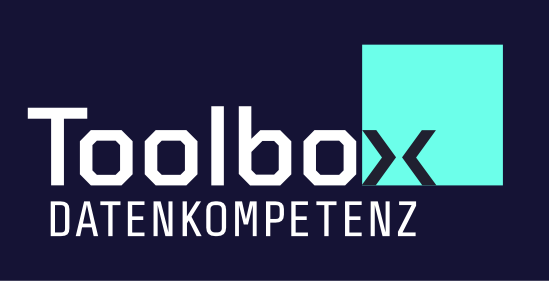Our mission
With the project Toolbox Data Competence, we want to create a digital tool and further education platform that promotes data competence throughout society. In doing so, digital learning content and data tools are to be combined to enable application-oriented learning and the practical handling of real data.
Sub-goals in the project:
- Participatory development of teaching and learning scenarios as well as core requirements for important actors from business, education and politics.
- Development and testing of a user-friendly and robust digital platform as a basis for the toolbox.
- Development and testing of different learning and working tools for the promotion of data literacy
- Development and testing of a secure and intuitive digital learning environment that supports the teaching and learning scenarios
- Development of target group-specific incentive systems and a long-term strategy to make the project permanent (open access strategy)
The path to success
The project uses the approach of Design Science Research, in which scientific findings are combined with practice-oriented developments. In order to achieve the set goals, various research questions are addressed, such as the requirements for a user-friendly platform for teaching data literacy, the development of incentive systems to promote platform use and the creation of teaching and learning scenarios for different target groups. Further questions concern the integration of data tools into the platform, the prioritisation of functionalities, the consideration of data protection and data security as well as the development of teaching and media formats for the sustainable teaching of data literacy.
Project participants & impact
The project members Institut for Applied Informatics and StackFuel are jointly developing the project with the competent support of experts from the advisory board and network.
The toolbox is available to business, science, politics and all citizens in Germany for independent use in order to build up or further develop basic data competencies. The toolbox is designed as an open platform that enables learners to use the data tools for their own learning projects or research scenarios.
A funding measure to shape the digital education space of the Federal Ministry of Education and Research.
Duration: 15.12.2021-14.12.2024

